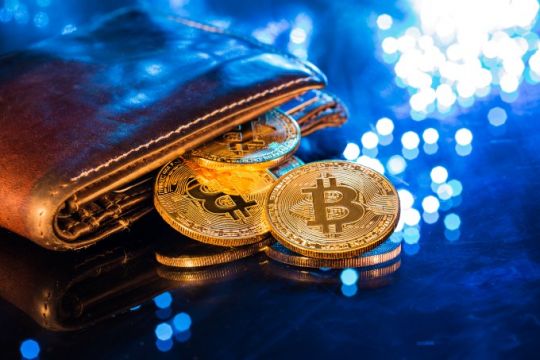How to Safely Store Cryptocurrency in 2022

Whether you’re new to crypto or looking to refresh your knowledge base, security should always come first when buying or selling digital assets.
With the ever-present risk of malicious actors and scams online, it is as important as ever to ensure you’re keeping your investments secure. So, what steps can you take to keep your crypto secure?
With an abundance of platforms, wallet types, two-factor authentication and strategies for setting secure passwords, here are just a few simple techniques you can use to protect your investments.
Use a trusted exchange to buy your crypto in the first place
Before learning about keeping your crypto secure, you first need to buy it safely. The best way to do this is by completing your own research and using a trusted Australian platform that abides by Australian laws and regulations.
There are numerous digital currency exchanges available to begin investing in crypto. However, not all these platforms practice best security protocols such as external audits, ISO certification or partnerships with regulatory bodies like Blockchain Australia.
Related article: How to choose a cryptocurrency exchange
Australian Cryptocurrency Exchanges January 2026
The table below displays some of our referral partners’ Cryptocurrency Exchanges.
This information does not reflect any ranking, rating, recommendation or endorsement by Canstar of cryptocurrency or any specific provider. Canstar is providing factual information supplied by providers. Not all providers or products are shown. Canstar will earn a fee from the providers displayed in the table, and the fee levels determine placement in the table. Cryptocurrencies are speculative, complex and can involve significant risks. Canstar is not providing a recommendation for your individual circumstances.
Consider utilising a cold wallet for long-term crypto storage
The range of wallets used to store cryptocurrency can be divided into two categories: hot wallets and cold wallets.
Cold wallets are not connected to the internet and can allow you to store your funds offline and continue to receive funds. Cold wallets include paper wallets, which generally refer to a physical copy or paper print of your public and private keys.
Paper wallets can be generated online and printed off as a more secure option compared to their electronic counterpart. However, they are easy to damage or lose.
Another type of cold wallet is hardware wallets, which are specific devices such as specialised USBs designed to store your private keys and can be capable of making online payments. While these are very secure, they are not cheap.
Hot wallets, on the other hand, are entirely online-based. They include cloud wallets, which can be accessed from a computer or similar device and store your private keys using a third party.
While this type of wallet is convenient and essential for frequent buying and trading, they are often not as secure as cold wallets. The other type of hot wallet is software wallets, which can be downloaded on a PC or phone.
When investing in cryptocurrency, it is important to consider what type of wallet(s) you will use, as each comes with its own list of pros and cons. While cold wallets are generally safer, they can be easily misplaced and may be outside the average investor’s budget.
Related article: Opinion: 4 Best Bitcoin and Crypto Wallets for 2022
Don’t publicly boast your holdings
While it can be exciting to start making money off your investments, boasting about them or sharing details regarding them online is incredibly dangerous and can lead to earning the attention of malicious parties.
Avoid discussing or sharing information related to your crypto holdings on any public site/forum, especially any with personal information about you. Even if a hacker does not have your personal key, people can often use information you post online to access your wallets.
Bragging can also lead to you becoming the online target of multiple hackers, who can use phishing sites, malware and 2FA exploits to gain access to your wallets, making your online experience significantly less safe.
Two-factor Authentication is essential
Two-factor authentication (2FA) is an extra layer of security to prevent your personal accounts from being hacked by requiring another piece of information to verify your identity apart from a username and password. The use of 2FA is becoming more commonplace among the average internet user as a way to ensure their social media, banking details, and online accounts are safe from criminal activity.
Common types of 2FA include PINs, the answer to a secret question, your smartphone, a hardware token, or even your biometrics. Another common 2FA provided by websites associated with cryptocurrency is the generation of a time-based one-time password and involves the generation of a temporary 6-digit code that only works for 30 seconds.
If using secret questions as a form of 2FA, it goes without saying that the questions you answer should be rather complex and not information you can find out via your social media accounts or public records. Passwords should also not be reused across multiple sites if possible, as this greatly increases the chances of your accounts being compromised.
While 2FA is a great way to ensure your wallets are protected, it is important to note that SMS 2FA, in which your phone receives a digit code, can be exploited by hackers via multiple tricks; however, they are quite complex.
Be wary of public WiFi and phishing sites
Phishing attacks involve the use of fake websites designed to mimic legitimate cryptocurrency platforms in an attempt to get users to unsuspectingly log into the fake site and expose their details. If you are not careful, it is easy to become a victim of these phishing sites, with many of them using misleading domain names that are almost indistinguishable to the actual site, such as cryptoexchange.co instead of cryptoexchange.com. Before signing in, always check the URL of the site to ensure its legitimacy.
Crypto wallets should never be accessed when using public WiFi, such as at a local coffee shop or library, as this can leave you vulnerable to hacking. It goes without saying that data over this type of open connection is often unencrypted and unsecured, so it requires extra steps to improve security. Should you need to access a crypto wallet using public WiFi, consider using a VPN to help tighten the security of your network.
When using public WiFi, ensure that the sites you visit use an encrypted connection (HTTPS instead of HTTP); otherwise, this will leave you vulnerable to a cyber attack.
When planning how to keep your crypto assets protected, there are many things to consider. Take the time to research different wallet types and how they can improve the security of your assets, enable 2FA, keep your holdings private, and remain cautious about where and when you decide to access your wallets.
Cover image source: Lukas Gojda/Shutterstock.com
This article was reviewed by our Content Producer Marissa Hayden before it was updated, as part of our fact-checking process.







